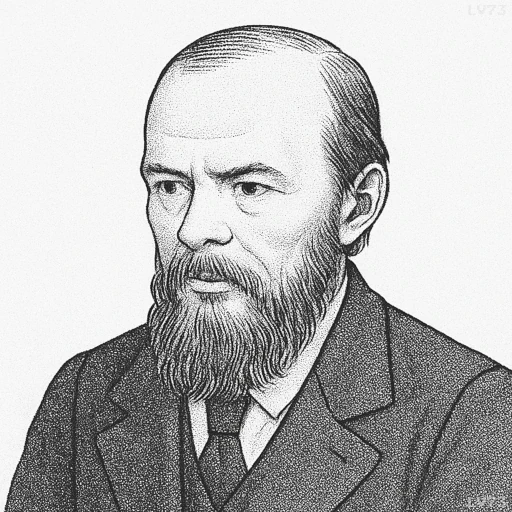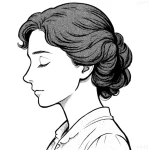“Beauty is mysterious as well as terrible. God and devil are fighting there, and the battlefield is the heart of man.”

- November 11, 1821 – February 9, 1881
- Born in the Russian Empire
- Novelist, philosopher
table of contents
Quote
“Beauty is mysterious as well as terrible. God and devil are fighting there, and the battlefield is the heart of man.”
Explanation
Dostoevsky’s quote delves into the duality of beauty and its profound effect on the human soul. He presents beauty not just as something aesthetic or pleasing, but as a force that is both mysterious and terrible, with the capacity to both uplift and devastate. This paradoxical view of beauty highlights its power to evoke a complex range of emotions—awe, desire, and even fear. The idea that beauty is where God and the devil are fighting reflects Dostoevsky’s belief in the inherent moral struggle within every individual. Beauty, in his view, is not a simple, passive experience but a spiritual battlefield that tests a person’s values, intentions, and soul. It can draw a person closer to the divine or lead them toward temptation and corruption.
The image of God and the devil fighting within the heart of man captures Dostoevsky’s view of the moral complexity of human nature. His works often explore the tension between good and evil within individuals, and this quote suggests that beauty, as a force in the world, can either lead to transcendence or destruction depending on how one engages with it. In his novels, characters are frequently confronted with moments of beauty—whether in love, art, or nature—that challenge their moral compass. For example, in The Brothers Karamazov, the character of Alyosha embodies the ideal of spiritual beauty, while his brother Ivan represents the intellectual skepticism that can lead one away from the divine. Beauty, then, is not just a superficial experience; it holds the potential to transform or corrupt the heart, depending on how it is approached.
In the modern world, this quote resonates deeply in the context of how beauty—whether physical, artistic, or philosophical—continues to shape human experience. Today, beauty often plays a role in the commercialization of desire, with advertising and media presenting it as something to be consumed or possessed. However, Dostoevsky’s warning about the terrible side of beauty speaks to the dangers of becoming enamored with superficial ideals or seeking beauty for its own sake. The battlefield of the heart remains relevant as people navigate the tension between idealized beauty and the moral responsibility it carries. Whether in the arts, in personal relationships, or in societal expectations, beauty continues to be a powerful force that challenges individuals to reconcile their higher ideals with the temptations of ego, pride, and vanity. Ultimately, Dostoevsky suggests that beauty, when seen clearly, is a reflection of the divine and the human struggle itself.
Would you like to share your impressions or related stories about this quote in the comments section?



